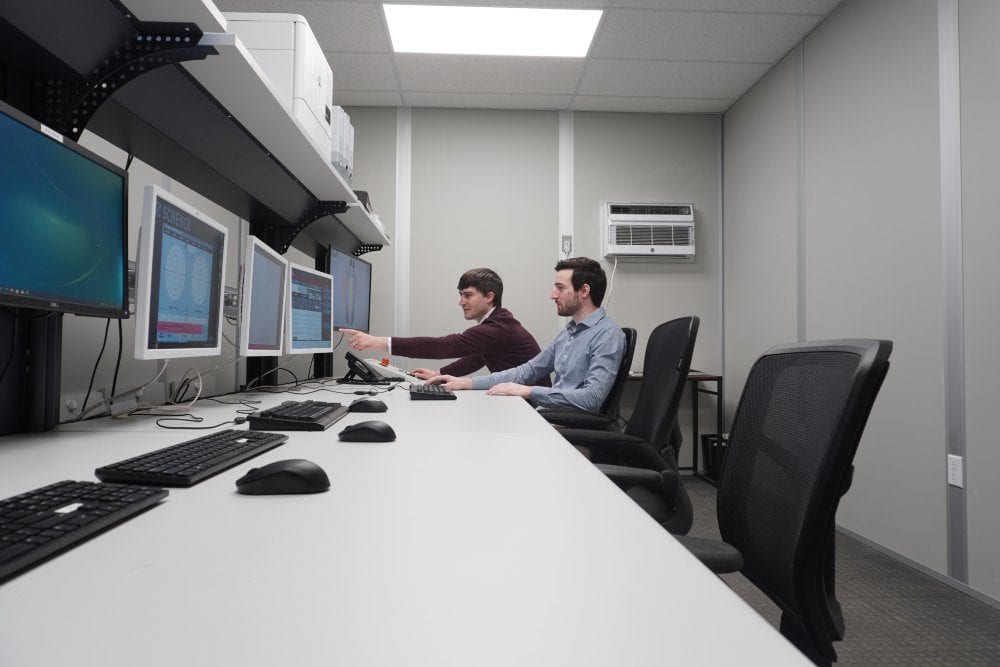Low Cycle Fatigue Testing and Crack Detection Systems
In a high-speed rotating machinery, comprehensive testing is required to ensure the rotor design integrity and durability. Fatigue in these parts – cracks that form due to cyclic load – may result in incipient component failure, causing malfunction or loss of operational critical machines, and in some cases may cause personal injury or death.
Even if manufacturers do their very best to design flawless parts with sufficient fatigue resistance, validity of the analytical work must be tested in a representative condition for the component operating in a machine. Testing can help to provide the necessary and highly relevant data to refine the calculation for the component’s service life and maintenance requirements.
Low Cycle Fatigue Testing

In a high-tech machine, such as a jet engine, the design of the key functional parts (e.g. disks and blades) often requires very intricate geometry – which involves a careful balancing of its intended functionality with the structural stress profiles. Recurring load/stress in the rotor is known to typically initiate cracking in localized stress risers such as sharp corners or bolt holes.
Fatigue is a probabilistic problem that involves a management of uncertainties. The durability of the rotor parts is known to be significantly affected by various factors ranging from differences in operating conditions of the machines, handling damage to the small variations in manufacturing operations, inherent material scatter in material properties and the presence of defects (presence of micro voids, impurity, inclusions etc.).
LCF spin testing can provide critical data for validating and improving the fatigue damage model. Spin testing offers a test method which uses the size and geometrically representative test specimen (sometimes using the actual production parts) with the complex stress field generated by the CF load. Furthermore, by leveraging the TDI’s advanced LCF testing capabilities that combines elevated temperature environment (including thermal gradient), engineers can examine the component performance in a more realistic engine-like test environment.
The applications for LCF testing are numerous, such as:
- Jet engine rotors / Industrial gas turbine rotors
- High-speed electric motor rotors
- Turbochargers
- Rocket pumps
- Compressor rotors
- Flywheels / Energy storage flywheels
- High-speed fans
- Centrifuge rotors
- Material characterization
Real-Time Crack Detection System
At Test Devices, we use a Real-Time Crack Detection System (RT-CDS) to monitor the emergence of cracks in LCF tests. The RT-CDS system has a proven track record of 90%+ crack detection success rate. We originally developed and patented this technology in 2000 and have been refining its capabilities on an ongoing basis.
The benefit of the RT-CDS is that the system allows us to interrupt the LCF test just as a crack initiates in the test rotor, preserving the test specimen in an ideal condition for the understanding the initiation site and onset of growth crack in the component. Being able to preserve the test rotor without bursting it also eliminates the task of post failure investigations, involving the laborious and painstaking process of piecing together the burst fragments of a test rotor.
A high level of confidence in detecting the crack without bursting a rotor also allows us to plan and execute the LCF test with the minimum amount of interim inspections, significantly shortening the overall test schedule.
The Value of Fatigue Testing with Test Devices, Inc.
Fatigue damage in high-speed rotors and their components are important concerns that could result in catastrophic failures if not properly addressed. Fatigue testing is a crucial step in determining the durability and ultimate service life of a component. Test Devices, Inc. has extensive experience performing LCF testing for assessing rotor fatigue behavior with accuracy and in a safe test environment.
TDI has developed purpose designed high-power drive systems that enable fast LCF cycling, which can operate 24-7 unattended. Combining these capabilities with the RT-CDS, TDI can offer high quality and expeditious LCF testing services. To ensure the fidelity of LCF test results, we review the test parameters and cycle profiles by using cycle auditing software.
Our online data system records all tests, and data may be easily transferred, stored, and viewed. You may also choose to receive daily updates to stay up to speed on the progress of your project and learn more about the data that has been collected. At the completion of testing, you will receive a complete analysis and archived data access for future use.
The combination of these test capabilities enables us to offer cutting-edge tests with the highest efficiency.
For more information about Low Cycle Fatigue testing, our RT-CDS, or our other services, please contact us today.

